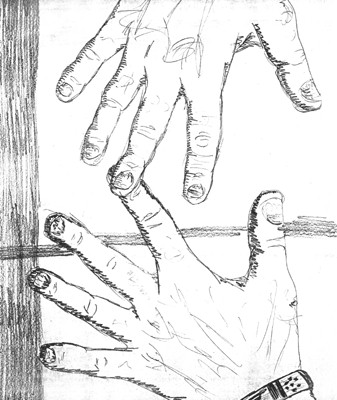All Nonfiction
- Bullying
- Books
- Academic
- Author Interviews
- Celebrity interviews
- College Articles
- College Essays
- Educator of the Year
- Heroes
- Interviews
- Memoir
- Personal Experience
- Sports
- Travel & Culture
All Opinions
- Bullying
- Current Events / Politics
- Discrimination
- Drugs / Alcohol / Smoking
- Entertainment / Celebrities
- Environment
- Love / Relationships
- Movies / Music / TV
- Pop Culture / Trends
- School / College
- Social Issues / Civics
- Spirituality / Religion
- Sports / Hobbies
All Hot Topics
- Bullying
- Community Service
- Environment
- Health
- Letters to the Editor
- Pride & Prejudice
- What Matters
- Back
Summer Guide
- Program Links
- Program Reviews
- Back
College Guide
- College Links
- College Reviews
- College Essays
- College Articles
- Back
The Concept of Race
We are all vastly different. Some of us have lighter skin tones and some of us have darker skin tones; and some of us are shorter, or skinnier, or bigger, or taller. We are very different indeed, but we are also fundamentally the same, with The Human Genome Project telling us that we are 99.9% genetically alike. They have literally mapped out our genetic genes and scientifically proved that we are the same. We’re all human, and we've got emotions, and we live on the same planet, and we all breathe air. We are only 0.1% different from each other, and yet, that seems to matter so much to people. The term 'race' is no longer scientifically valid, for race is not biological, but cultural. However, it is psychologically in our nature to have a predisposition to fear those which are unlike ourselves. Humans are programmed to spot differences and categorize things, including people of different skin colour. This, however, does not mean that we are born racist, because we do not automatically assume that those that are different are inferior. We are nurtured to become this way through society and our environment. And so we have to ask ourselves, how did all of this happen?
Discrimination based on superficial phenotypical traits like skin colour stems a long way back, a prominent event being the Atlantic Slave Trade during the 19th century. The introduction of the slavery of people from Africa influenced people to believe that non-whites were biologically different and thus, inferior, to justify the subjugation of Africans and the economic gain and free labour people would receive from this transaction. When the Europeans arrived in Africa, they exploited the tensions between rival tribes and traded weapons for slaves, taking them away from their families, their friends, and everything they've ever known. They were put on a boat, elbow to elbow, and knee to knee like animals, and forced to endure a treacherous journey across the ocean. Some were drowned, many were beaten, raped, and killed; a lot of them never saw land again. They pleaded and begged for mercy but none was given. Because they were subhuman. Because they were expendable. And when they arrived in America, the land of the free, things didn't get much better. Most of them were deprived of an education and fundamental rights, and a staggering number of slaves were raped, brutally victimized, degraded, and punished severely for lack of legitimate reason—not that there is ever one. The ramifications of our dark, prejudiced past still echoes with us today, leaving deep-rooted scars that will take a long time, if ever, to mend.
Although race has become a discredited scientific term, there have been huge social implications for our society that have hindered the equality that most strive for. Our historical racism for perceived inferior groups has not ended, causing racial stratification among our population. The consequences can be shown by Jane Elliot’s experiment in 1968 on her third graders to show them how racial discrimination worked and how it felt. Her class became a simulation of real-life discrimination, using trivial eye colours like blue and brown instead. The results were that the “inferior” group began to really feel that they were substandard students, causing less confidence in them and lower test scores. These results are relatable to real life scenarios, where discriminated groups internalized racism and thus, performed worse than others. It’s a vicious cycle that becomes harder to break when stereotypes are put into place—that white people are innately smarter, when in fact, all people have equal potential when they are born and it changes based on their environment and circumstances. But despite all these negative things, despite this cruel history we have, there may still be hope for us yet. Jane Elliot’s test also showed that when the experiment was reversed the next day, the group that was discriminated against the day before were more empathetic and sensitive to the other group’s suffering. And so, if indeed racism and differentiation of skin colour is nurtured, and not embedded in our genes, perhaps we can change our ways. And maybe one day, discrimination by superficial phenotypical traits will be just another callous part of our past.

Similar Articles
JOIN THE DISCUSSION
This article has 0 comments.
